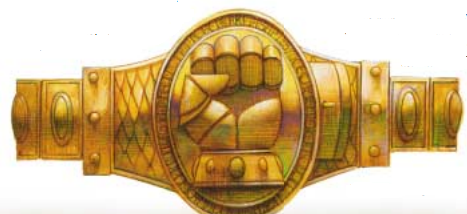The people of Yunshan’s six high clans believe themselves to be the noble descendants of a fated union between the most cultured and virtuous of the Tein Ming, and the most spiritually enlightened of the original people of the mists. This belief is important to their identity, though they do not come across as hyper focused on pedigree or obsessed with race. In reality, they are simply the descendants of those who rebelled against the Shinto Dynasty and fared the best in its aftermath. Still, they possess distinct and beautiful features. They display a sort of natural grace and focus. They seem to possess something special other humans don’t, to the extent that most who come to meet them come to
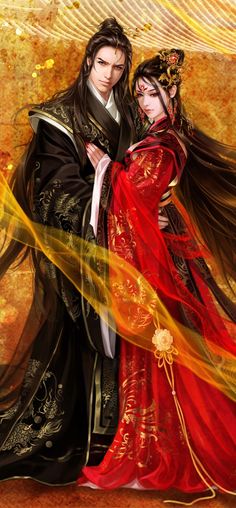 the conclusion that they are indeed somehow special, that there is something in their blood, or written in the destinies of their family names that makes them truly noble, not just in name, but in being.
the conclusion that they are indeed somehow special, that there is something in their blood, or written in the destinies of their family names that makes them truly noble, not just in name, but in being.
They are known by many names. Even though their blood has been thoroughly mingled with Tein Ming, Shinto, and more exotic peoples over hundreds of years, it is fashionable among their kind to refer to themselves by the names the original people of the Mist went by:
-People of the Mist
-Children of the Mist
-Mist People
They are also collectively refereed to as
-The Clans of the Mist
-The Mist Clans
-The High Clans
-The Lijunzi Clans or sometimes just Jun Zi, which is a term in Yunshan’s dialect that means a cultured and honorable person.
The Caste System of the Six Clans
Within each clan is a caste system, which is generally the same across all the clans. The castes are as follows, with the upper most class listed first.
Lijunzi
Farmers
Artisans
Servants
Merchants/Nozufoo
Non People
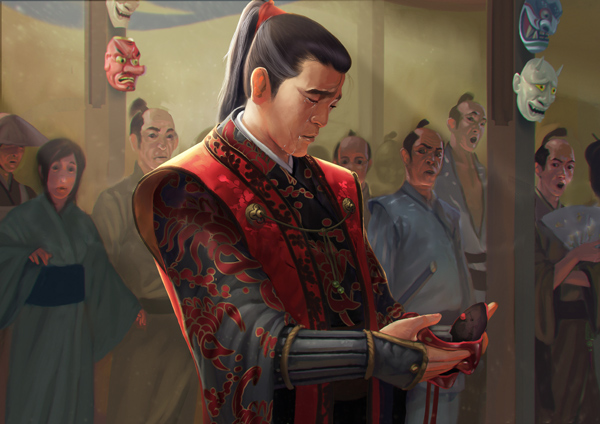 Lijunzi
Lijunzi
At the top of each clan is a group of families that belong to the Lijunzi (Lee June-Zee) caste. This word is unique to Yunshan dialect, and there’s no direct translation. It encompass many ideas related to leadership and honor. In just those three syllables are contained the following meanings; capable warrior, shrewd administrator, fair judge of events, poet of life, and wise philosopher whose knowledge is applied for effect. The Lijunzi truly see themselves as these things, and are expected by all castes of clan society to live up to them.
From early childhood those born into a Lijunzi family are intensely schooled. They are the privileged in their society, but they are also the caste from whom the most is expected. They are held to high standards, and expected to be exemplars of the clan’s values.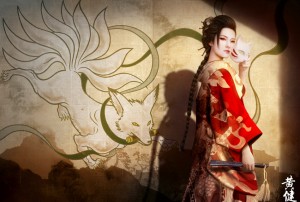
Though not all Lijunzi are warriors, all are expected to train in the martial arts and pursue peak physical fitness. Though not all are governors or leaders, all are expected to study the laws and understand Yunshan’s politics. While not all are scholars, all expected to know math and read the histories and poems that define their clan. Though they are not artists, they are expected to master an instrument, painting, poetry, or the drawing of characters. In short, each Lijunzi spends a great deal of his life mastering and exemplifying the finer pursuits of Yunshan culture. They are to be well rounded and skilled.
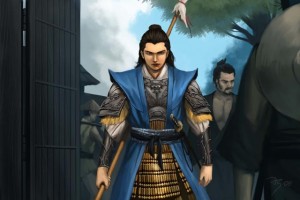 Farmers
Farmers
The 2nd caste in Clan society is that of the farmer. This is very different from other societies. In most lands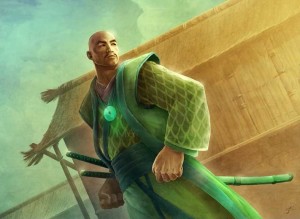 the farmer is poor and hopeless, often no more than a slave, and at best a surf. In Yunshan, the most powerful farming families control dozens of farms and enjoy the kind of prestige usually associated with lesser nobles. They own the land they farm. Even the lowliest farmer is seen as the owner of his land, and the master of his destiny. Not even a clan lord can take the lowliest farmers land without permission and proper restitution.
the farmer is poor and hopeless, often no more than a slave, and at best a surf. In Yunshan, the most powerful farming families control dozens of farms and enjoy the kind of prestige usually associated with lesser nobles. They own the land they farm. Even the lowliest farmer is seen as the owner of his land, and the master of his destiny. Not even a clan lord can take the lowliest farmers land without permission and proper restitution.
Farmers are allowed to bare and train in martial arms, can pursue legal claims against any caste, even the Lijunzi , and have full control of what they own. Each farmer is like the king of his own tiny kingdom, though he is still bound to the greater laws of the clan.
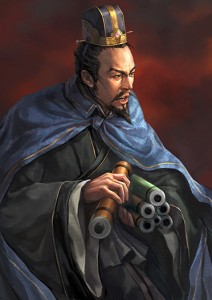 Artisans
Artisans
Below the farmers are the various craftsmen of the clan, who usually organize themselves into guilds of related 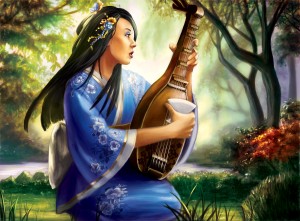 tradesmen, not so different from anywhere else in the world. Like farmers, artisans can grow to have influence and wealth, but are more limited. They may only bare certain kinds of weapons, usually simple weapons. They can settle legal grievances against other castes, but are limited in the kinds of charges they can bring against Farmers, and are extremely limited in what they can bring against the Lijunzi . Artisans are primarily employed by the farmer and Lijunzi families, and there is often competition among these more privileged castes as to which family has the best artisans on retainer. Usually even a lesser farmer or Lijunzi family will sponsor at least one artisan, paying him higher wages and granting him privilege in exchange for exclusive service. The best artisans can become pampered, wealthy, and walk with their heads held high, but must always remember their place.
tradesmen, not so different from anywhere else in the world. Like farmers, artisans can grow to have influence and wealth, but are more limited. They may only bare certain kinds of weapons, usually simple weapons. They can settle legal grievances against other castes, but are limited in the kinds of charges they can bring against Farmers, and are extremely limited in what they can bring against the Lijunzi . Artisans are primarily employed by the farmer and Lijunzi families, and there is often competition among these more privileged castes as to which family has the best artisans on retainer. Usually even a lesser farmer or Lijunzi family will sponsor at least one artisan, paying him higher wages and granting him privilege in exchange for exclusive service. The best artisans can become pampered, wealthy, and walk with their heads held high, but must always remember their place.
Servants
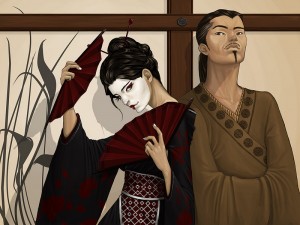 The next class lower are the servants. This caste is composed of families whose chief trade is some
The next class lower are the servants. This caste is composed of families whose chief trade is some 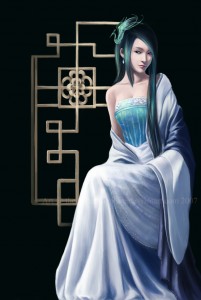 uncomplicated or undesirable service most would not want to endure. House servants, maids, tavern and shop owners (those who do not make their own goods, who would be considered Artisans), and common laborers belong to this class. Also, street entertainers and lower class artists of all kinds are part of this caste. Those of the Servant caste are expected to feel fortunate that they live in such a beautiful and safe place as the clan lands. They are expected to be humble, hard working, and to not complain about the tasks given them.
uncomplicated or undesirable service most would not want to endure. House servants, maids, tavern and shop owners (those who do not make their own goods, who would be considered Artisans), and common laborers belong to this class. Also, street entertainers and lower class artists of all kinds are part of this caste. Those of the Servant caste are expected to feel fortunate that they live in such a beautiful and safe place as the clan lands. They are expected to be humble, hard working, and to not complain about the tasks given them.
Their is no condoned slavery in Yunshan culture. Slavery is seen as a barbaric practice. Any one who employs a servant is expected to provide room, board, and a suitable stipend. It is an interesting fact to note that some servants whose craft demands exceptional knowledge, skill, or discretion, are considered to be among the Artisan caste, not the servant caste. Courtesans, butlers, body guards,special kinds of messengers,master musicians and artists are all considered of the artisan caste.
Nozufoo/Merchants
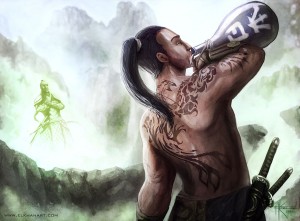 Nozufoo and merchant are often used interchangeably among the people of the mists. Nearly all who are merchants are born nozufoo, but not all nozu are merchants by trade. Many Nozu live on the roads of Yunshan’s clan lands, constantly moving about as their station requires, fulfilling roles of merchant, guide, messenger, and even spy. Nozu who spend a great deal of time in the lands of a particular clan come to be relied upon for their services, duties the clans see as beneath them, but needed none the less. Ironically, Nozu who chose to work and live within clan lands, become seen as the bottom most clan caste. People would never say this out loud, as the Nozu are supposed to be outcasts. The practical matter is, thousands live in the clan lands, where they are relied upon, and paid for whatever it is they provide. In practice they become like a part of the clan they provide their services to, though no clans person would say such a thing out loud.
Nozufoo and merchant are often used interchangeably among the people of the mists. Nearly all who are merchants are born nozufoo, but not all nozu are merchants by trade. Many Nozu live on the roads of Yunshan’s clan lands, constantly moving about as their station requires, fulfilling roles of merchant, guide, messenger, and even spy. Nozu who spend a great deal of time in the lands of a particular clan come to be relied upon for their services, duties the clans see as beneath them, but needed none the less. Ironically, Nozu who chose to work and live within clan lands, become seen as the bottom most clan caste. People would never say this out loud, as the Nozu are supposed to be outcasts. The practical matter is, thousands live in the clan lands, where they are relied upon, and paid for whatever it is they provide. In practice they become like a part of the clan they provide their services to, though no clans person would say such a thing out loud.
Non People
Bandits and people who have made pacts with evil spirits in the wilderness are far worse than Nozufoo. They have abandoned humanity itself, they are non people, to be hunted and driven away whenever possible.
What about foreigners
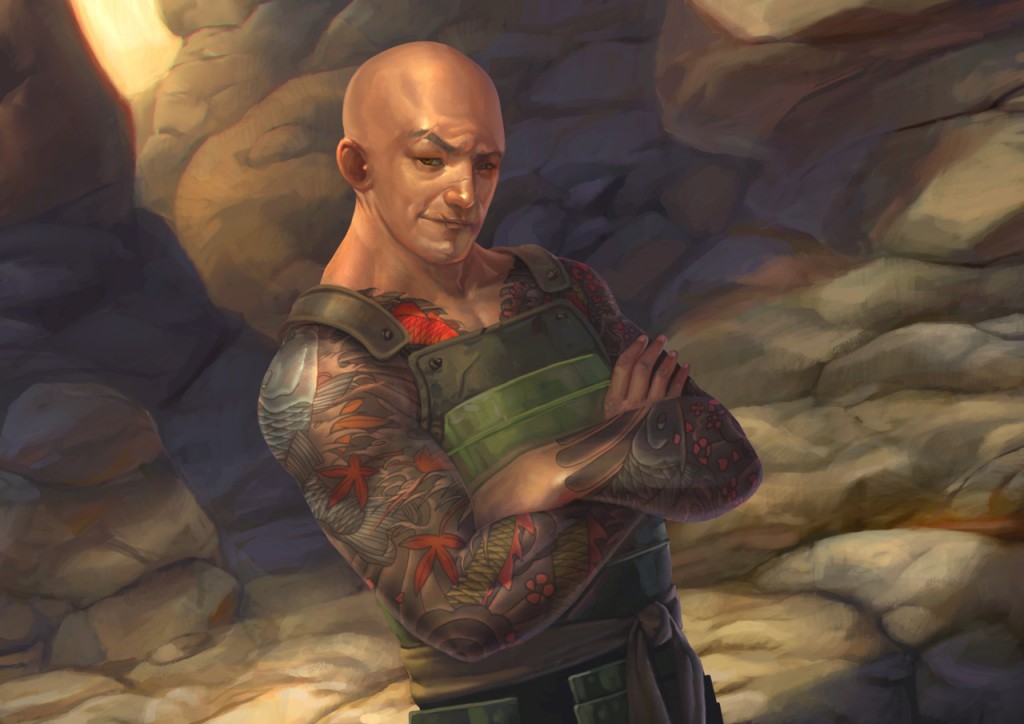 The clans people have a weak spot for foreign intrigue and novelty, and a sense of curiosity that usually leads them to be forgiving of the ignorance outsiders have of their traditions. Mist people tend to ask a stranger very early on what it is they do, or what kind of mission they are on, and treat them accordingly. If it is a foreign dignitary seeking audience with a Kijun, they will tend to treat him as they would an esteemed diplomat from another clan. If he is a craftsman, they treat him as an artisan.
The clans people have a weak spot for foreign intrigue and novelty, and a sense of curiosity that usually leads them to be forgiving of the ignorance outsiders have of their traditions. Mist people tend to ask a stranger very early on what it is they do, or what kind of mission they are on, and treat them accordingly. If it is a foreign dignitary seeking audience with a Kijun, they will tend to treat him as they would an esteemed diplomat from another clan. If he is a craftsman, they treat him as an artisan.
In some clans require foreigners to wear a special token that hangs from their belt at all times. This token tells authorities they have been given the right to travel and conduct business, and also assigns them a caste appropriate to that business according to tradition. They will be expected to follow all the laws and traditions associated with that caste, and for all intents and purposes the clans people will treat them as they would a native of that caste. Wise foreigners will pay a special guide a great sum to travel with them and help them to behave properly according to the caste they have been assigned.
Clans people are generally forgiving of foreigners who commit an innocent faux pa. They intrinsically believe their culture to be superior, but they are not so presuming to expect strangers should know all their ways. They do however expect outsiders to come to their lands with knowledge and respect of the culture, and what a visitor does not know, they had better be willing to learn quickly. Most mist people have a natural curiosity that engenders patience with strangers, but patience can vanish in an instant if the stranger is not apologetic about their transgressions and eager for correction. Likewise, disrespectful strangers will be dealt with in creative ways, with no apologies. The people of the mists spent centuries enduring the oppression of foreign masters, and fighting in bloody wars brought to their doorstep by outsiders. They are very aware of a past where foreign armies came to their land to fight over what belonged to them! The Mist People won their freedom, and rebuilt their land from the ground up. They have fared better than many in the world. They have no patience for bullying or disrespect from outsiders.
Rising Beyond Your Caste
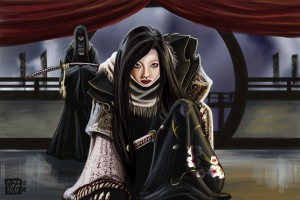 Often a clans person, or even a Nozu, that does great things for much of their lives, is given a chance to rise out of their caste. This is usually an offer presented later in life, after years of accomplishment. A sponsoring member of either the class above them, or of the Lijunzi class, submits their name to the clan council and makes a case for them, that there is greatness in their blood beyond their current caste. These requests are nearly always approved, as another clan member willing to put their reputation on the line for one of lesser caste is usually impressive enough.
Often a clans person, or even a Nozu, that does great things for much of their lives, is given a chance to rise out of their caste. This is usually an offer presented later in life, after years of accomplishment. A sponsoring member of either the class above them, or of the Lijunzi class, submits their name to the clan council and makes a case for them, that there is greatness in their blood beyond their current caste. These requests are nearly always approved, as another clan member willing to put their reputation on the line for one of lesser caste is usually impressive enough.
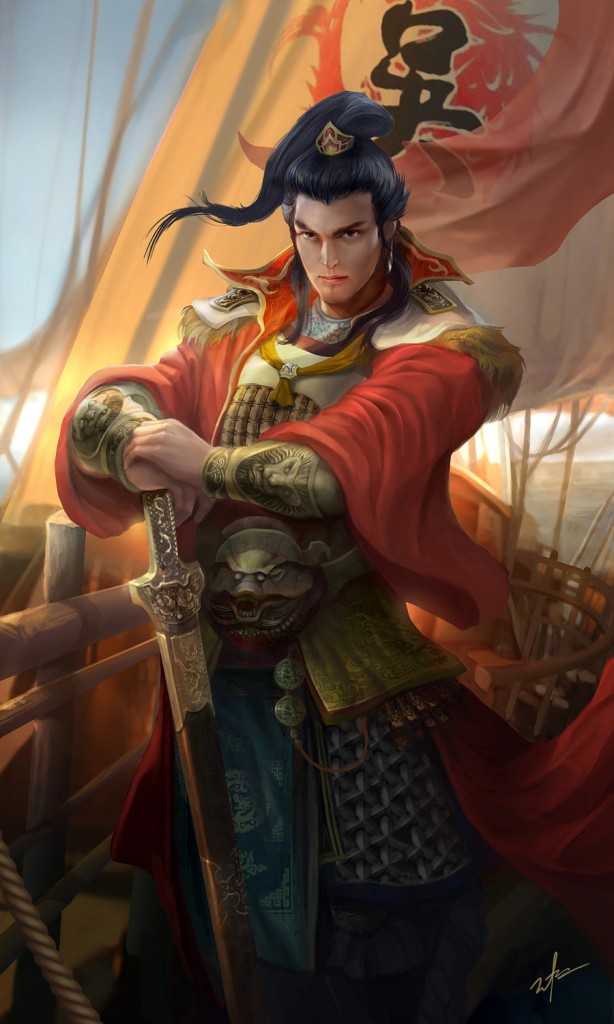 Clan Government
Clan Government
Each clan has some kind of figure head chosen from among the Lijunzi families to serve as the clan leader. This person is given a strict set of executive powers. These clan Lords are somewhat like kings, though the Clans people purposely avoid that term. Instead, each clans leader is called a Clan Lord, Master Kensai, or a Kijun (Ki-June). In some clans the Kijun is a hereditary position, making them even more like a king. In these clans, the leader’s family is seen as the direct descendants of the guided guide who founded the clan, and it’s believed their very blood contains a mandate of leadership from heaven itself. In other clans the position is a 10 year term, chosen by election among the clans council of Lijunzi families.
All clans have a council made up of one representative from each of its Lijunzi families. In some cases this council is more powerful, or at least on par with the Clan Lord. In other clans, the Lijunzi council is more like a cabinet of advisers, with great influence, but ultimately subservient to the Clan Lord. The council decides how a clans settlements will be governed, and determines general clan policy.
Their is usually also a council of farmers, comprised of the clans greatest land lords. These farmers are in charge of passing laws and judgement having to do with the rural clan lands, and food production.(Things like what to grow, when to plant and harvest, and when to let land go fallow, and how to defend the frontiers of the region.)
There is typically also an artisan council, who passes laws and judgement concerning the high arts and crafts, and the manufacturing of such items. (things like building codes and standards of workmanship)
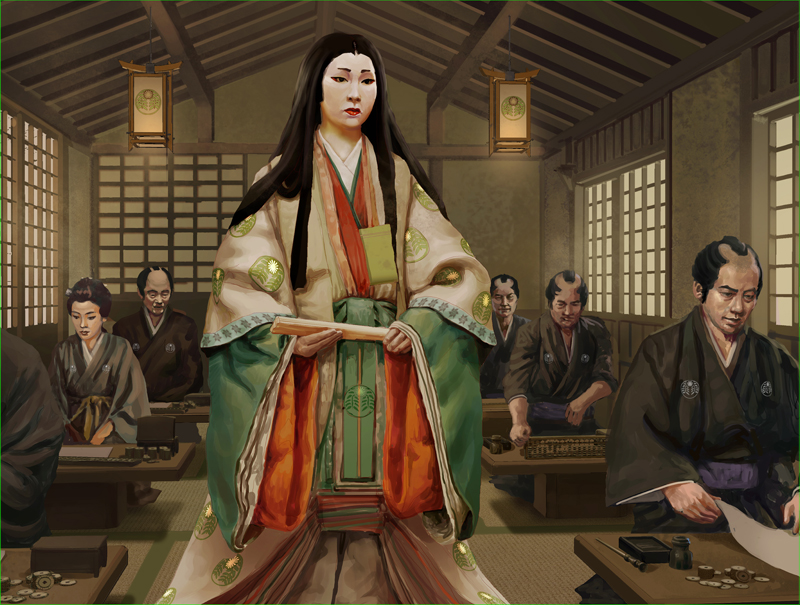 Working with the Kijun and these 3 councils, is a complicated bureaucracy in charge of record keeping, procedure, enforcement and implementation of all the laws in place. This complicated, but well ordered collection of departments, and sub departments is staffed by clans people of all castes. Positions are given based upon special examinations that are given every 5 years. Though cumbersome and sometimes slow, the clan bureaucracies are very effective at getting results. All is tabulated, analyzed, and implemented. This well oiled but complex government body is a hold over from Tein Ming culture. Positions within it are gained based on ability and nothing else, so it is an opportunity for those of lower castes to gain power and prestige beyond what they were born into. The Tein Ming were masters of collecting and analyzing information in meticulous detail, preparing detailed reports, records, and action plans for their leaders like no other nation. The Clans people have kept this tradition
Working with the Kijun and these 3 councils, is a complicated bureaucracy in charge of record keeping, procedure, enforcement and implementation of all the laws in place. This complicated, but well ordered collection of departments, and sub departments is staffed by clans people of all castes. Positions are given based upon special examinations that are given every 5 years. Though cumbersome and sometimes slow, the clan bureaucracies are very effective at getting results. All is tabulated, analyzed, and implemented. This well oiled but complex government body is a hold over from Tein Ming culture. Positions within it are gained based on ability and nothing else, so it is an opportunity for those of lower castes to gain power and prestige beyond what they were born into. The Tein Ming were masters of collecting and analyzing information in meticulous detail, preparing detailed reports, records, and action plans for their leaders like no other nation. The Clans people have kept this tradition 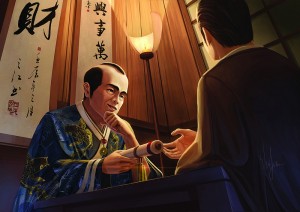 alive.
alive.
It is often said that because of the bureaucracy, a clans Kijun knows the weight of every grain of rice for each years harvest, and the number of hairs on the head of every child born that year. This is a ridiculous exaggeration of course, but when foreigners see the vast record scrolls on display in the Lijunzi council halls, and witness rooms full of scribes, furiously tabulating information day in, day out, they may suspect there is truth to it. The clan bureaucracies have an obsession with the collection of data, mundane or otherwise, and pursue it with zeal.
A Day in Clan Life
Most Clans people rise with the sun and work hard until early afternoon, when tradition mandates they bathe in cool water and go down to the saki house. There’s much more on Saki Houses in the Strange Ways and Customs section. Married couples with children alternate days between the afternoon duties of adulthood. One, often jokingly referred to as the ambassador of mirth, must go and drink at the saki house with their fellow clan, the other stays home and spends the afternoon playing with the children. The one who stays home is expected to really join in the playing, to have fun. Children playing with their parents at this time is thought to bless the house against any unfriendly spirits that might come by that night. Whoever’s turn it is to stay home is encouraged to drink as well.
An hour beyond sundown the typical Clan settlement is deathly quite. All have gone in doors to have dinner, and spend the evening in quite thought, reflecting on the day. This is to be a time of calm, contemplation, and sleep. Each clan settlement has a person responsible for calling the changing of times through the day. This is usually a priest, who will go through the street calling that it is time to stop working. This is a serious call which must be obeyed! It’s not nearly as fun when this priest bursts into the saki house telling all it’s time to stop drinking and stumble home. In larger settlements the passage from work day, to mirth, to night time is marked with a special gong or horn. Still, it is tradition that a priest will go down the towns main street calling the changing of the time, just for show and tradition.
This pattern of work, play, and rest repeats day after day, and is the rhythm of clan life, like a heart beat each citizen experiences together. There is a stubborn, superstitious devotion to the routine, so much so that it defines clan life. There are some exceptions, but these fit right into the rhythm, less like interruptions, and more like planned exceptions that mark the passage of time.
Saturdays
The people of the Mists make little distinction between practical living and spiritual teaching. their culture demands a constant recognition of the spirits and gods, and observance of proper procedures to keep these powers happy. For them, what others would view as superstition, is the practical thing to do! Urgent matters of spirituality are dealt with promptly, but most things can wait until Saturday afternoon. On Saturday most people work until high noon, and then are expected to tend to matters of the ancestors and religion. Often times a Mist Person must seek out a priest or soothsayer to perform some minor blessing or atonement. If there is nothing specific to be done, a trip to the ancestor shrine to burn incense and honor the dead will suffice as a proper use of the time. In Temple Lands, and many clan lands, the people will fast on Saturdays until sundown.
Saturday night is given to the spirits of mirth. This is the one night of the week, besides special holidays, where merry making is not only allowed, but expected to go late into the night. Saturdays are considered lucky and sacred. These are days when the dead, the gods, and the spirits of the land are all open to the plight of man at the same time! This is why Saturday afternoons are considered the best time to do a ritual or ask a blessing, and Saturday nights the best time for a festival or Marriage.
Sundays
Sundays mist people sleep in until they wake, and are then expected to work on matters not pertaining to their jobs. They care for their homes, and intensely study whatever it is they do on the side. They might exorcise, do projects around the house, do laundry, practice with weapons, stock water and firewood for the coming week, work on a painting, poem or song they’ve been crafting, or a little of all these things. For families, this is household chore day, and the work does not stop until sunset. This working until dark is called “starving the spirits of mirth”, and is done every Sunday to shake any unseen bad luck that a person might have picked up during the week.
Sundays efforts end with a low key meal, traditionally prepared outside on an open flame just after sunset. For families, this is a fun time of togetherness, but never a large party. To be invited to a family’s Sunday dinner is considered a high honor, one you absolutely would not turn down unless you had already made evening plans with another. On Sundays it’s considered uncouth to drink mere Saki or beer. This is a time to sip the good stuff. Most often, a fine unfiltered saki, aged to perfection, is mixed with cream and spices to make a special drink that is traditional for Sundays. If someone invited you to eat or drink with them on a Sunday evening, it is considered a big deal, it is an unspoken display of non romantic love, of true friendship. This is called “Setting Sunday”. You would say you “set Sunday” with someone. You would never ask someone to “set Sunday” with you unless you were already friends. Asking a stranger would be improper or too forward, unless the stranger saved your life or gave you some great life altering help. It is considered ok for someone of a higher caste to set Sunday with someone of a lower class for the purpose of promoting them or bestowing some honor on them.
Holidays
Yunshan is a place of many Holidays, which will be detailed under the Strange ways and Customs section. Here’s a list of some of them.
-New Years Eve and Day
-Skullshine
-Gakishu
-Planting Feast
-Midharvest
The Nozufoo
Though they are outcasts as far as clan tradition is concerned, the Nozufoo have become almost just as important to Yunshan. Far from dying out, they have managed to flourish in the areas the Clans of the Mist walked away from. The Next Session speaks of the Nozufoo.

